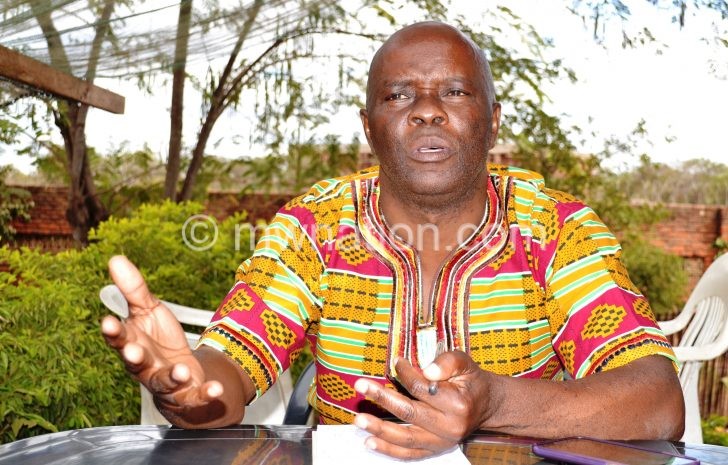Faith leaders want violence-free elections

Residents of Mbayani in Blantyre were recently saved from fierce political skirmishes involving supporters of MP for Blantyre Kabula Felix Njawala and an aspiring candidate Rashid Gaffar, thanks to faith leaders. With assistance from the National Initiative for Civic Education (Nice) Trust, faith leaders successfully doused the fire before it spread. Our reporter WATIPASO MZUNGU JNR asks leader of an interdenominational religious grouping, Chigonjetso Community Development Organisation (CDO), Evangelist Linly Mbeta, on what they did to bring the two camps to the talking table.
What caused the differences between supporters of the two candidates?
It was a very simple issue, honestly. You remember that Mbayani Police Unit was burnt down by angry residents some time in November. The residents were dissatisfied with the way the police handled the case of a teenager who had killed a businessman—Feston Chipinda—after disagreeing on payment for a packet of fresh milk. Following the incident, the area has been operating without a police unit. This brought a lot of worry among chiefs and community leaders about lack of security in the area.
While community leaders were mulling over where to get resources for renovating the unit, MP Njawala and an aspirant, Gaffar, came forward with each promising to renovate the facility. I suppose considering that this is an electoral season, each one of them wanted to gain political mileage out of the initiative. That was the genesis of the disagreements between supporters of the two politicians.
So, how did you, as faith leaders, defuse the tensions?
First, let me inform you that all along we have been in a partnership with Nice Trust. Nice Trust trained us with skills for containing, handling and managing political tensions. It is these skills we learned from Nice that we employed in defusing tensions between supporters of Njawala and Gaffar. As faith leaders, our major role has been to preach coexistence, peace and love for one another irrespective of political affiliations.
On the other hand, NICE provides trainings to political leaders in principles of democracy, good governance and political tolerance. Politicians are always reminded on the need for an issue-based campaign as a measure for preventing violence.
One may argue that faith leaders are now stepping out of their area of jurisdiction by getting themselves into politics. What basis do you have for intervening in politically-motivated differences?
Our area of intervention mainly focuses on building the spirit of love and unity for mankind. We are also sensitising people on the need to tolerate one another and let God fight for us where we are limited. This is in line with Psalms 35 which records the story of King David who appealed for God’s intervention when he saw that he did not have the power to contend with his enemies. We, faith leaders, are teaching politicians and their supporters to relent and trust in God’s might. You may also wish to appreciate that all leaders derive their powers to govern from God. This means that no one can rise to the position of leadership through hook or crook. God must first choose you. The role of the people is merely to endorse God’s choice through various means such as elections. The Tripartite Elections Malawi is holding next year gives us an opportunity to agree with God’s choice.
That is why it is important that everyone takes part in these elections. Staying away from elections is just the same as rejecting God’s decision for you.
What do you think is behind politically-motivated violence?
The main cause for politically-motivated violence is lack of understanding among our leaders that leadership is derived from God. Most of our political leaders do not understand the concept of power; hence, they cannot appreciate the importance of an issue-based campaign. I believe that this country can achieve a violence-free electoral process if our leaders understand the concept of leadership. However, it’s not too late because the partnership between Chigonjetso and NICE aims at sensitising political leaders on issue-based campaign, qualities of a good leader, among others. If we instill these values in ourselves, Malawi will be able to conduct electoral processes that are free from violence, tensions and hatred.
In case there are some politicians who are planning chaos when they fail in elections, what advice can you give them?
Honourably concede defeat and partner with the winners and together serve your people. Leadership doesn’t entail being in power only. You can still lead the people even outside parliament, State House or the Assembly.



